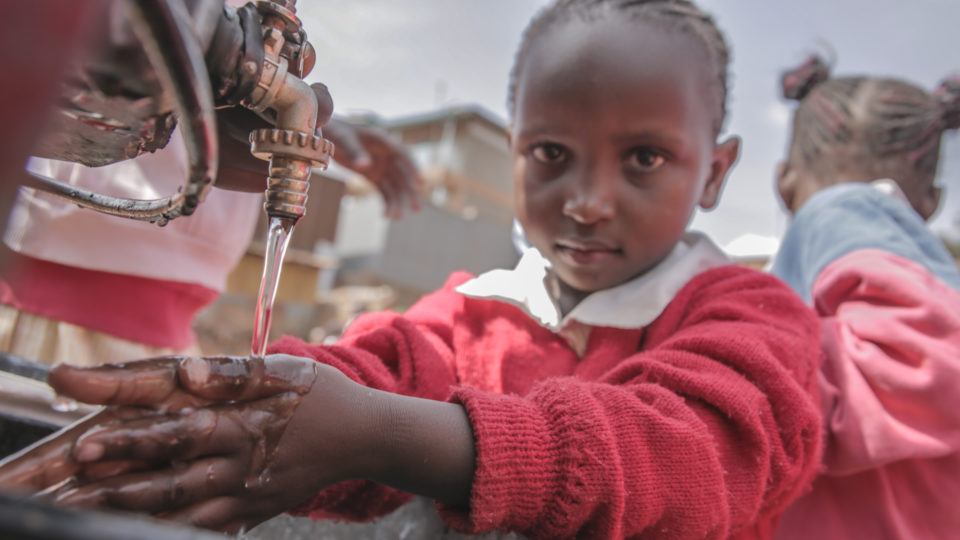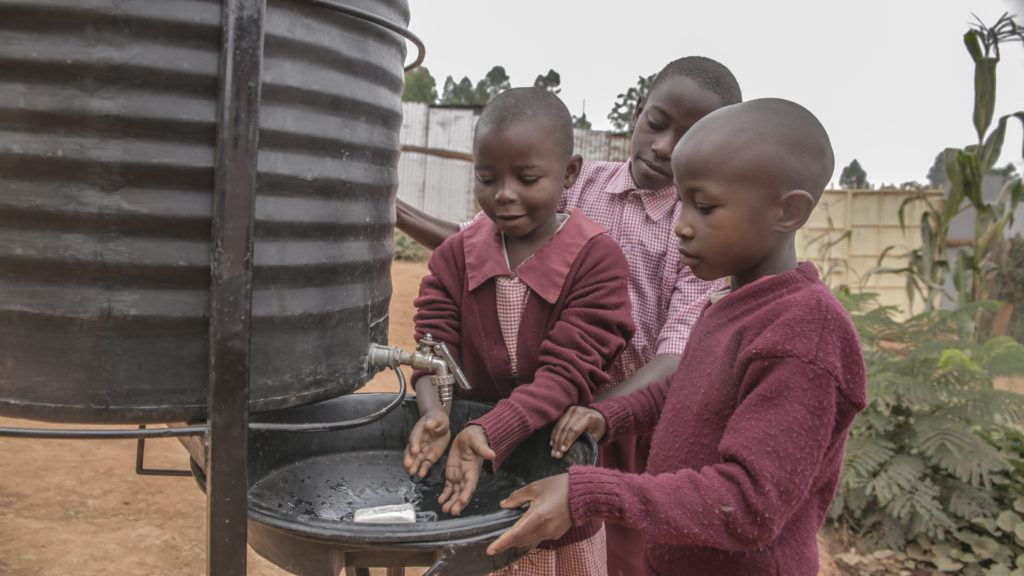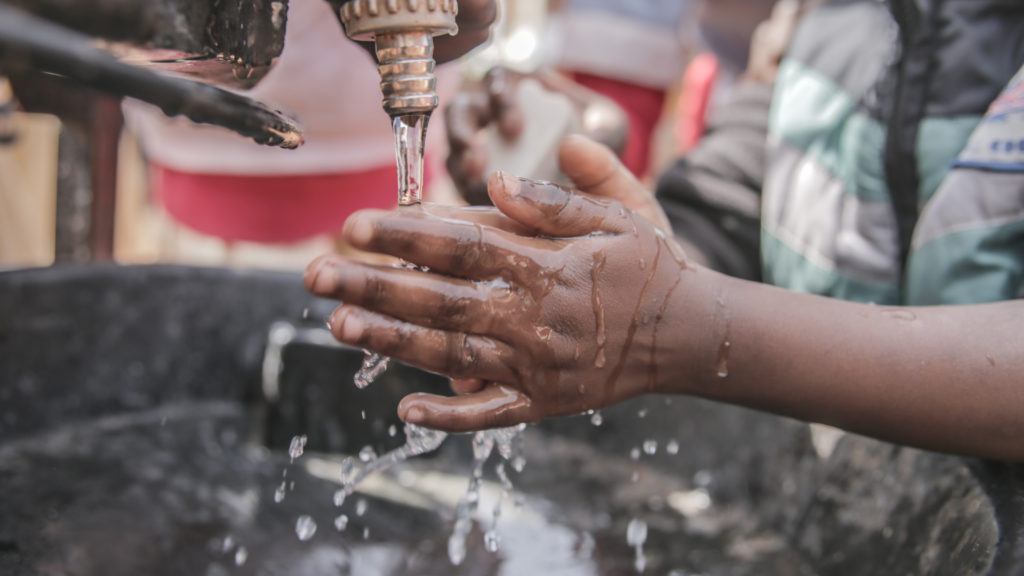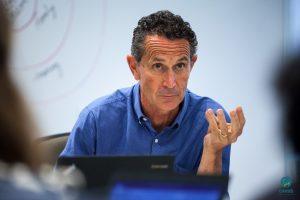A Hospital Without Water?

This opinion piece was originally published in The Hill, Some photos of our work around water and sanitation have been added. It was written by Bruce Wilkinson, CMMB CEO and President.
The World’s Hidden Health Crisis
Mentioned in the Bible no fewer than 722 times, water blesses, sanctifies, and purifies in religion. Yet far too often in healthcare settings, it does not do so because medical staff lack the most basic requirements to discharge their health-giving mission: safe water and sanitation.
It may sound unbelievable but a recent evaluation of 129,000 healthcare facilities in 78 low- to middle-income countries, found 66% had no running water and soap, 50% lacked piped-in water, and 33% did not have basic sanitation facilities. These data are echoed in areas where my CMMB colleagues work.
Critical WASH deficiencies do more than put medical professionals at risk each day as they try to treat patients. Pregnant women and newborns are extremely vulnerable. Think about the hospital infections that occur so frequently in developed nations such as the United States. Then imagine just how easily infections can be transmitted in healthcare settings where staff cannot adequately clean their hands.
Faith-based and secular organizations do so much genuinely effective health and development work around the world, in partnership with U.S. and other government agencies. We are trusted implementers on the frontlines. But our collective effectiveness is being undercut every day due to this pervasive lack of water, sanitation, and hygiene (WASH) in healthcare facilities. Its absence is not because proven and cost-effective WASH solutions aren’t available—they are. What missing is leadership and coordination across sectors—from health and water to development and finance. This problem inside healthcare facilities isn’t just a health problem, and it will take engagement from multiple sectors to fix.
I’m heartened by very recent attention being paid to this issue. On World Water Day, March 22, UN secretary general Antonio Guterres announced:
“Today, I am using the launch of the Water Action Decade to make a global call to action for water, sanitation, and hygiene . . . in all healthcare facilities.” World Health Organization director general Dr. Tedros Adhanom Ghebreyesus echoed the call: “We can’t expect #HealthForAll without these essentials. We support the global call to action for water, sanitation, and hygiene in ALL healthcare facilities.”
Faith-based organizations run up to 50 percent of healthcare facilities in some countries. I believe we have the unique opportunity to lead here. At CMMB, we have turned attention to WASH as a solvable healthcare issue.
At the Nzara Mission Hospital in strife-torn Western Equatoria State, South Sudan, I witnessed the tremendous dividends that just US$30,000 can yield. CMMB’s investment here paid for two items: a well and a water tank. In the year since they were installed, health facility infection rates declined, the number of maternity visits rose, staff morale improved, and healthy behaviors flourished in the community, inspired by improved hygiene practices in the hospital. We know we have a way to go, but we are committed to getting results.
Working with local communities in five countries under our Children and Mothers Partnerships (CHAMPS) initiative, we are prioritizing WASH in the CHAMPS catchment areas, and including all health facilities which are often left out of water projects because health, water, development and finance sectors are too often silo’d. Moreover, we’re not going to dig a borehole to provide water to a hospital or a village and leave—we’ve made a commitment to work with each of our communities for the next 15 to 20 years, to ensure that our accomplishments are sustained.
Improving WASH in healthcare facilities requires all faith-based organizations engaged in healthcare to better coordinate with multiple sectors from both government and private industry, and we must include local engagement. We can be effective in helping to bring together water, health, engineering, and finance partners. And because water pumps, pipes, and faucets break, we must make sure there’s also an ongoing commitment to maintenance.
If the faith-based community is truly committed to preventing illness and disease, and improving health outcomes, then we all need to direct greater focus to sustainable WASH in healthcare facilities. Perhaps it’s no coincidence that water is the single symbol shared by every world religion. Without water, there is no life. It’s time for all who are so committed to life to use our powers to make sure that health facilities have the tools they need to safeguard and preserve it.
About the Author
Bruce Wilkinson, CEO of CMMB, has 30 years of strategic and operational global experience across the maternal and child health, humanitarian assistance, economic development, and HIV/AIDS sectors. He has an MBA in international management from Cambridge University, England, and was a Peace Corps volunteer in Ghana.


